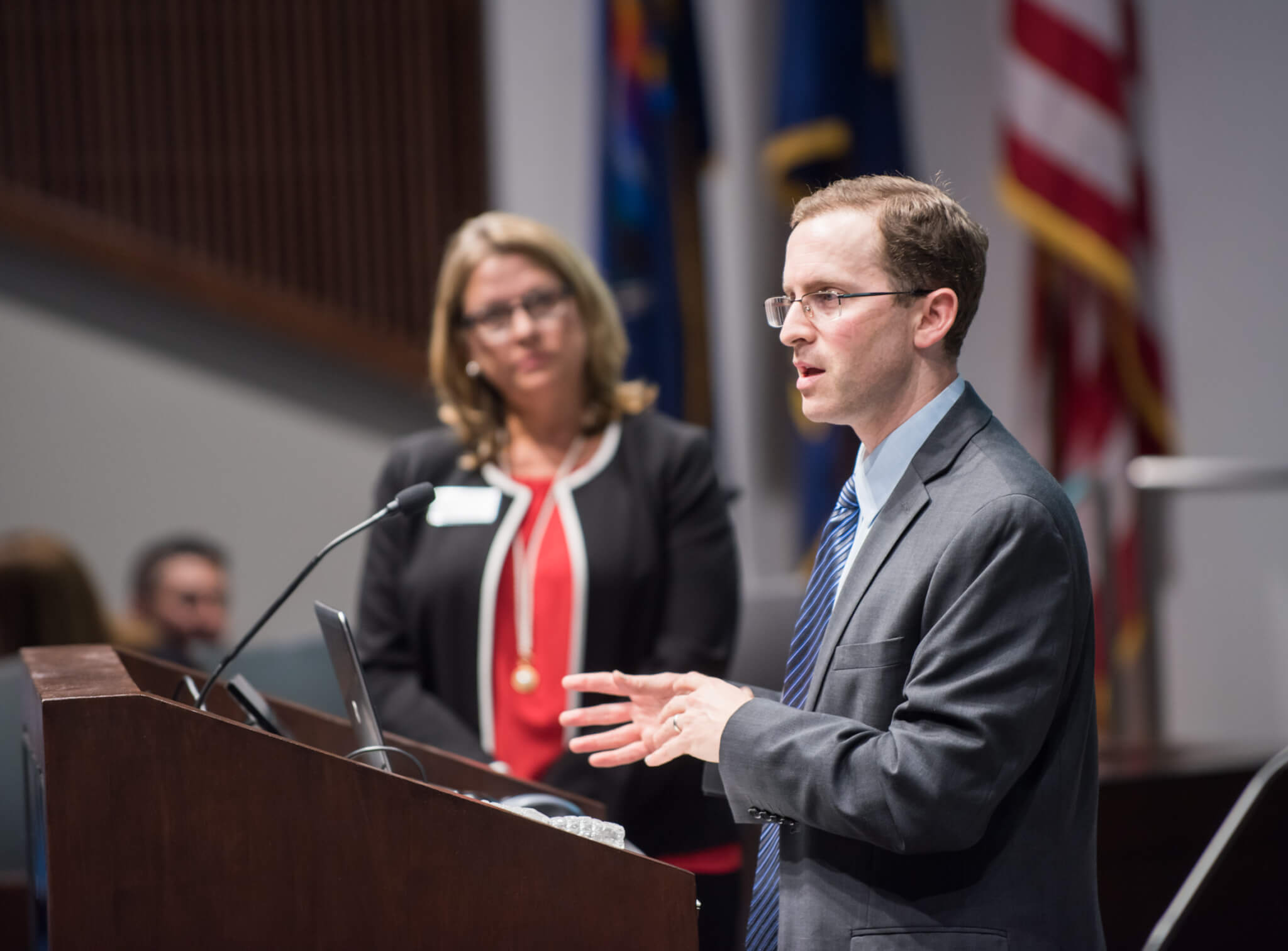Under the Affordable Care Act, more Americans than ever before gained health care coverage through Medicaid expansion. Medicaid expansion became optional in 2012. Thirty-three states have opted to expand their Medicaid programs to cover more low-income and uninsured adults. Kansas remains one of 17 states that have not expanded Medicaid.
To examine health outcomes of low-income Kansans and review the potential impact of expanding Medicaid in the state, the REACH Foundation partnered with researchers at the Harvard T.H. Chan School of Public Health with support from the Commonwealth Fund. The researchers conducted a telephone survey of 1,000 low-income non-elderly adults in Kansas and compared the findings with data on low-income adults in Ohio and Indiana, both of which expanded Medicaid. The study found that low-income adults in Kansas, which has not expanded Medicaid, are uninsured at higher rates and have worse access to health care than their peers in the two comparison states. Among the specific findings:
- Twenty percent of low-income adults in Kansas are uninsured — well above that of Indiana (14 percent) and Ohio (15 percent). Kansas’s coverage rate lags Indiana and Ohio even after accounting for demographic differences.
- Compared to Indiana and Ohio, low-income Kansans report worse quality of care, more frequent delays in care due to cost, and greater difficulty affording medical bills.
- Results show that policy approaches used by some states, such as work requirements, would have little impact on employment in Kansas because the majority of adults with incomes at or below 138 percent of the federal poverty level are already working or are disabled.
- The survey found that only 11 percent of low-income Kansans reported they were not working but would be more likely to seek employment if Medicaid work requirements were implemented.
The authors of the study, led by Benjamin D. Sommers, M.D., Ph.D., of the Harvard T.H. Chan School of Public Health, produced an issue brief that outlines these findings and the potential implications for Kansas.
The Kansas research was part of a larger study of all three states, including an examination of Ohio’s more standard approach to Medicaid expansion and Indiana’s implementation of POWER health savings accounts via a Section 1115 waiver. The study found that states’ current experimental approaches to Medicaid eligibility—including requirements to pay premiums, contribute to health savings accounts, or to work—may lead to unintended consequences for patient coverage and access, such as confusing beneficiaries or dissuading some people from enrolling. A review of the effects of these approaches was published in a June 20, 2018, journal article in Health Affairs.
KEY FINDINGS
- Ohio had significantly higher rates of Medicaid coverage compared to Kansas (53% vs. 36%) as well as lower uninsured rates (15% vs. 20%). But there was no significant difference between Ohio and Indiana, the two expansion states.
- The rate of delayed care due to costs were higher in Kansas and Indiana than in Ohio.
- Among enrollees in Indiana, 39 percent said they had not heard of the state’s POWER health savings accounts, 26 percent had heard of them but were not consistently making required payments, and 36 percent were making regular payments. The most common reason for nonpayment into the POWER accounts was affordability (31%).
- Among those familiar with POWER accounts, 57 percent agreed or strongly agreed that their account “helps me think about the health services I really need.” Meanwhile, 40 percent agreed or strongly agreed that the accounts were hard to understand or made it difficult to obtain necessary care.
- In Kansas, work requirements would affect only a small share of the potential population. Of those with Medicaid or without coverage (and presumably eligible under expansion), 49 percent were working and 34 percent had a disability that kept them from working. Eleven percent were not working and said they would be more likely to look for a job if it were required for receiving Medicaid.
ADDITIONAL RESOURCES
Read the Commonwealth Fund article
Read the Abstract
Read the Kansas Issue Brief
Download the State of Kansas Medicaid Slides
Study Contact: Benjamin D. Sommers, Associate Professor of Health Policy and Economics, Harvard T.H. Chan School of Public Health



